Ebony Rainford-Brent: ‘It’s about pathways for the most underrepresented groups’

Maybe you missed Warwickshire’s one-day cup game against Sussex in the dog days of August.It was a group fixture between two mid‑table teams in a competition to which no one pays a lot of attention.But despite it all, the match marked a significant little milestone in the modern history of English cricket.Because Sussex gave a debut to a 21‑year‑old from Hemel Hempstead called Troy Henry, the first male player to come up into professional cricket through the Ace programme.Henry had turned up for the very first trial Ace held, back when he was a teenage left‑arm quick who dreamed of playing pro cricket and needed help to do it.
Five years later, Sussex sent him in at No 9, he made 15 off eight balls, then came on fourth change and took one for 34 in four overs of left‑arm spin, because Ace’s coaches had persuaded him that if he wanted to get ahead he ought to switch disciplines.Four days later another Ace graduate, the 17-year-old Davina Perrin, smacked 101 off 43 balls for Northern Superchargers in the Hundred eliminator against London Spirit, in one of the stop‑and-watch-this moments of the English summer.A month earlier a third Ace graduate, Amy Wheeler, signed a new one‑year contract with the Blaze.It’s easy to want change, easy to talk or write about why we need it; back in 2020 everyone was doing it.The hard part is actually bringing it about.
Henry, Perrin and Wheeler are the first players to emerge from five years of organisation, administration, fundraising and coaching by Ebony Rainford‑Brent, Chevy Green and the team at Ace during the quiet in-between.Now Rainford-Brent is stepping down as chair.She will still be on the board, but feels the organisation needs someone with more expertise in fundraising as it makes its next steps.“When we started it was on a hunch that there was more talent in the black community that we needed to capture in the professional game,” she says.“We didn’t expect it to turn into a programme which also serves kids from across different cultures and class backgrounds, we didn’t expect to have 40,000 kids through the programme in five years, didn’t expect 370 kids in our academy across the nation, and we didn’t expect to have three pros come through this year.
”If the Ace programme grew to be bigger than Rainford-Brent expected, it was because the problems in English cricket were worse than she suspected.Five years working in the field has left her with the firm belief that while there are still problems with racial biases in the pathway “the class barrier is the biggest barrier to entry into cricket”.Ace has expanded its scope to meet this need.“We started with a lens of making sure the game wasn’t dying among one community, and we’re still doing that, but what we’ve created is something that is really just about opening up pathways for all the most underrepresented groups.” Ace has spread around the country and now about 20% of its intake comes from white working-class communities, particularly in inner cities.
Looking back on what she has learned, Rainford-Brent says she was surprised at “how much support the young people needed”.She imagined Ace would be primarily about improving performance – she is so easy-going, it’s easy to forget that she was a remarkable athlete herself – but the array of challenges young players face is much broader than she imagined.Take their three professionals.Perrin already had talent but needed personal mentoring, Wheeler’s family needed more structural support, and Henry needed specific coaching to help him make the switch from bowling pace to spin.She is not done.
“Our No 1 goal was to produce 10 professionals by 2030,” and they are well on their way already.“I think the wider target now is about creating that wraparound support, so we are creating employability in the game even for people who don’t make it as professional players.”Sign up to The SpinSubscribe to our cricket newsletter for our writers' thoughts on the biggest stories and a review of the week’s actionafter newsletter promotionThe two biggest steps she wants English cricket to take are to bring in more means testing so the cost of entry drops for people who are being priced out of playing, and changing the structure of the talent ID system so that opportunities are distributed evenly around the country rather than focused on, say, a handful of private schools.All this has to be done even when the conversation has moved on.The Independent Commission for Equity in Cricket published its exhaustive report on the state of the game in 2023 but already it feels like a document from another time.
“You get these peak interest moments and then it can fall off,” Rainford-Brent says.“Our true test is what happens in five or 10 years’ time and what we did in between these cycles when everyone was paying attention.” It helps that the leadership at the England and Wales Cricket Board has changed for the better, not least because, improbable as it seems to her, Rainford-Brent is a board member herself.“And yes,” she says, “I do wear my hi-tops to the board meetings.”“What I say is that we’ve gone from being hopeless to hopeful,” she says.
“But hopeful doesn’t mean we’ve cracked it.”

UK must reform drug pricing to become life sciences superpower, says GSK boss
GSK’s outgoing chief executive, Emma Walmsley, has said Britain will struggle to be a “life sciences superpower” unless it overhauls drug pricing.As ministers draw up proposals to increase the amount the NHS spends on new medicines by up to 25%, Walmsley said she was “hopeful and ambitious” that the standoff with the pharma industry could be resolved.According to the Academy of Medical Sciences, the government’s drug pricing announcement could come by the end of this week.Walmsley, who will hand over the top job to Luke Miels, currently GSK’s chief commercial officer, at the end of the year, said: “What everyone is putting their energy into, hopefully resolving, is how we make sure this country creates the right commercial environment.“Without that, it’s going to be very difficult to be able to be a leading life sciences superpower, which is what we want … and we are not going to secure something else we all want, which is patient access to innovation
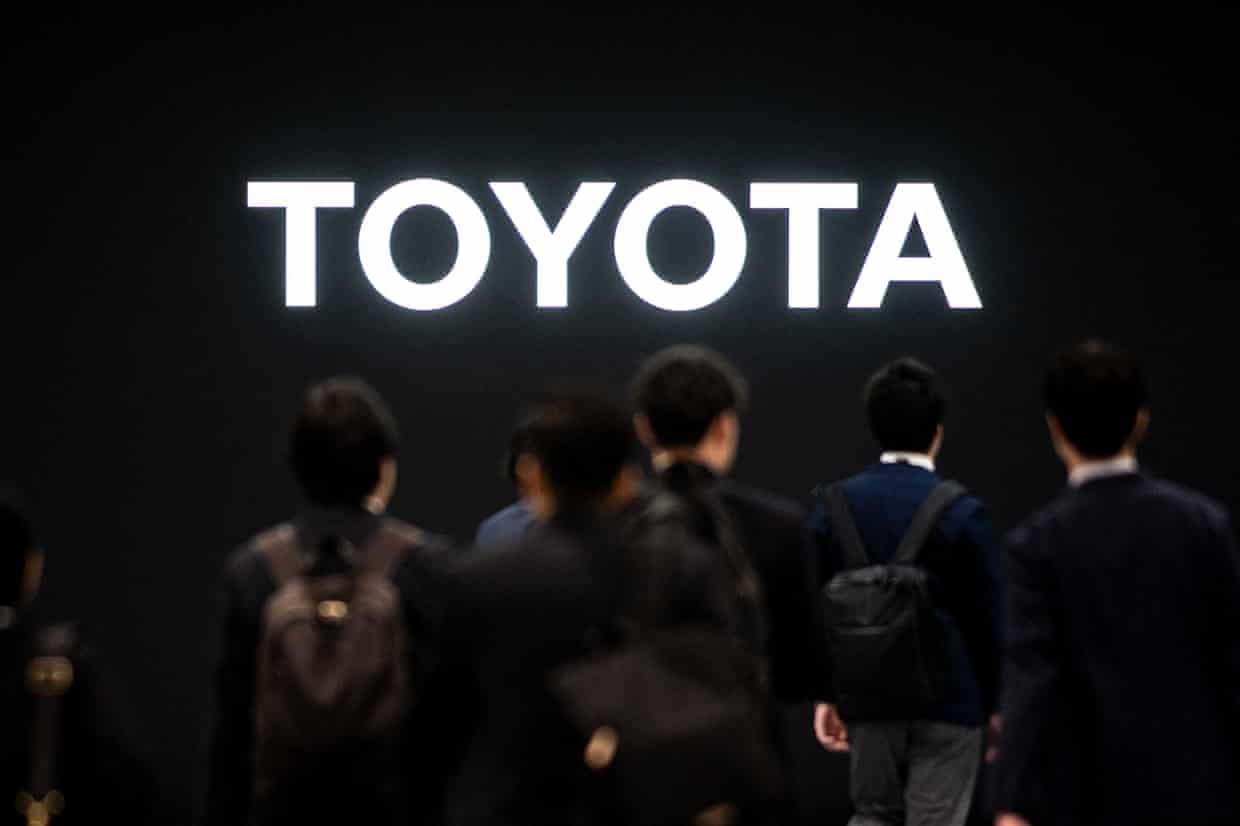
Toyota denies promising to invest $10bn in US after Trump announcement
The Japanese auto giant Toyota Motor has denied Donald Trump’s suggestion that it is poised to invest more than $10bn in the United States over the coming years.On a visit to Japan earlier this week, the US president claimed he had been told that the carmaker was going to be setting up factories “all over” the US “to the tune of over $10bn”.“Go out and buy a Toyota,” added Trump.But a senior executive at Toyota – the world’s largest automaker – said that no such explicit promise of investment at that level had been made, although Toyota plans to invest and create new jobs in the US.The firm held talks with Japanese and American officials ahead of Trump’s visit
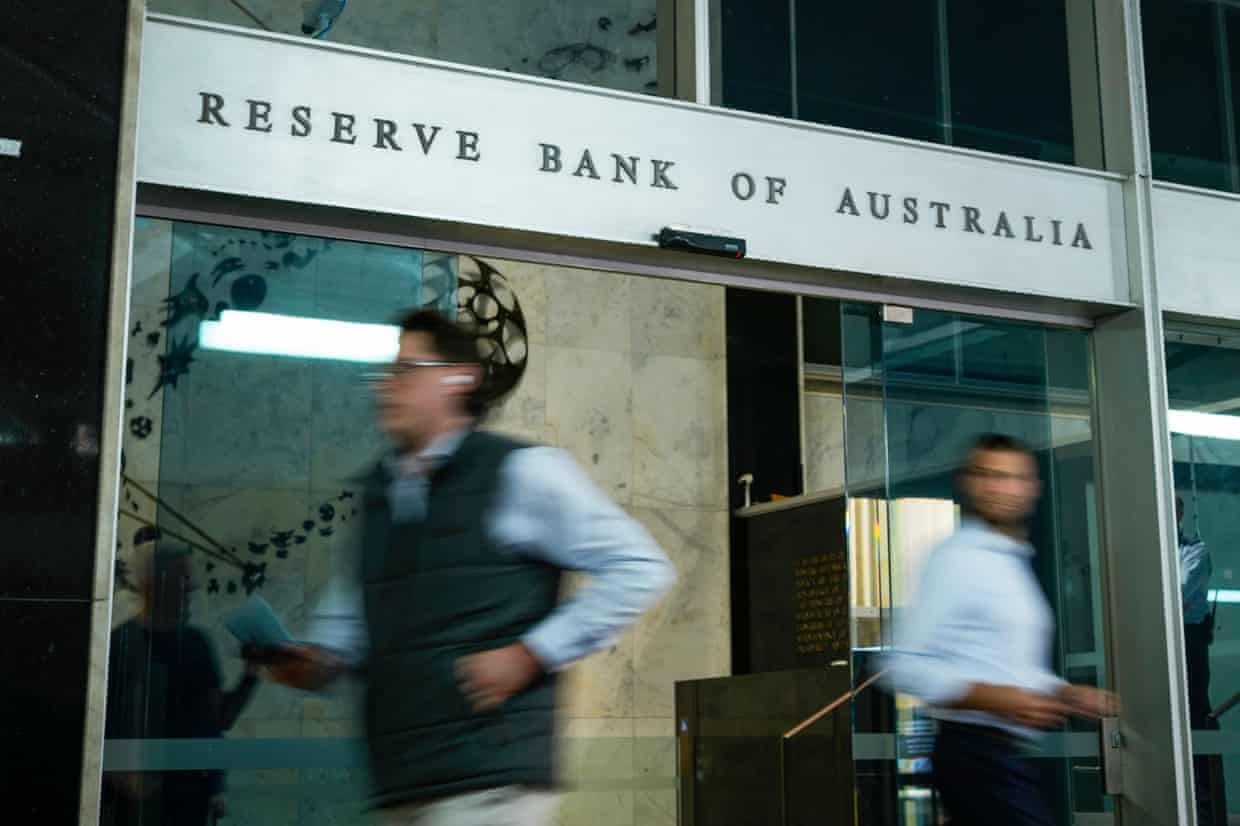
So it’s goodbye to lower interest rates – to be honest, the RBA was always looking for an excuse not to cut | Greg Jericho
Is there a release of economic data that can more quickly dash people’s hopes than inflation? Prior to Wednesday’s release of the September quarter CPI figures, there was a pretty good chance that on Melbourne Cup day the Reserve Bank of Australia would cut interest rates.Now that hope is gone.The quarterly inflation growth of 1.2% was roughly double what economists and investors were expecting:If the graph does not display click hereSo it’s goodbye to lowering interest rates – but to be honest the Reserve Bank was always looking for an excuse not to cut them.On Monday night, the governor of the Reserve Bank, Michele Bullock, was sanguine about the rise in unemployment
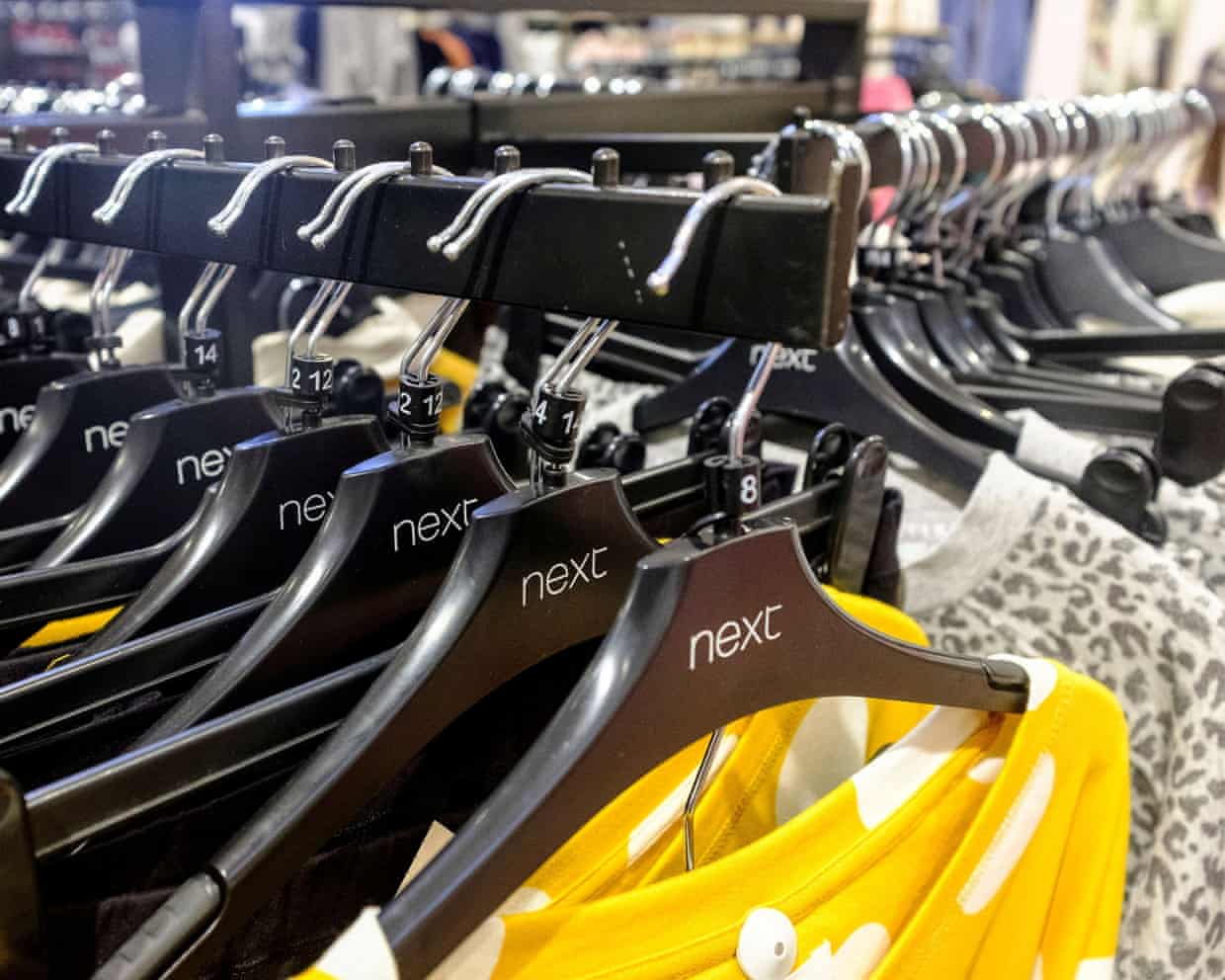
Profit upgrade at Next raises hopes UK shoppers still keen to spend
Next has raised hopes that UK consumers are still willing to spend despite pressures on household budgets, as it revealed sales and profit growth “materially above” expectations.The clothing and homeware retailer said it benefited from a sunny summer, the online shutdown of its rival Marks & Spencer for several weeks after an Easter cyber-attack, and an improvement in clothing supplies from countries such as Bangladesh compared with last year.Next, which now owns the UK rights to the US brands Gap and Victoria’s Secret as well as stakes in a plethora of labels including Reiss and Joules, raised its annual profit guidance by £30m – its fourth upgrade in eight months.Shares rose more than 7% on the news, making Next the top riser on the FTSE 100 on Wednesday morning.Analysts said the retailer, which now expects full-year profits of £1
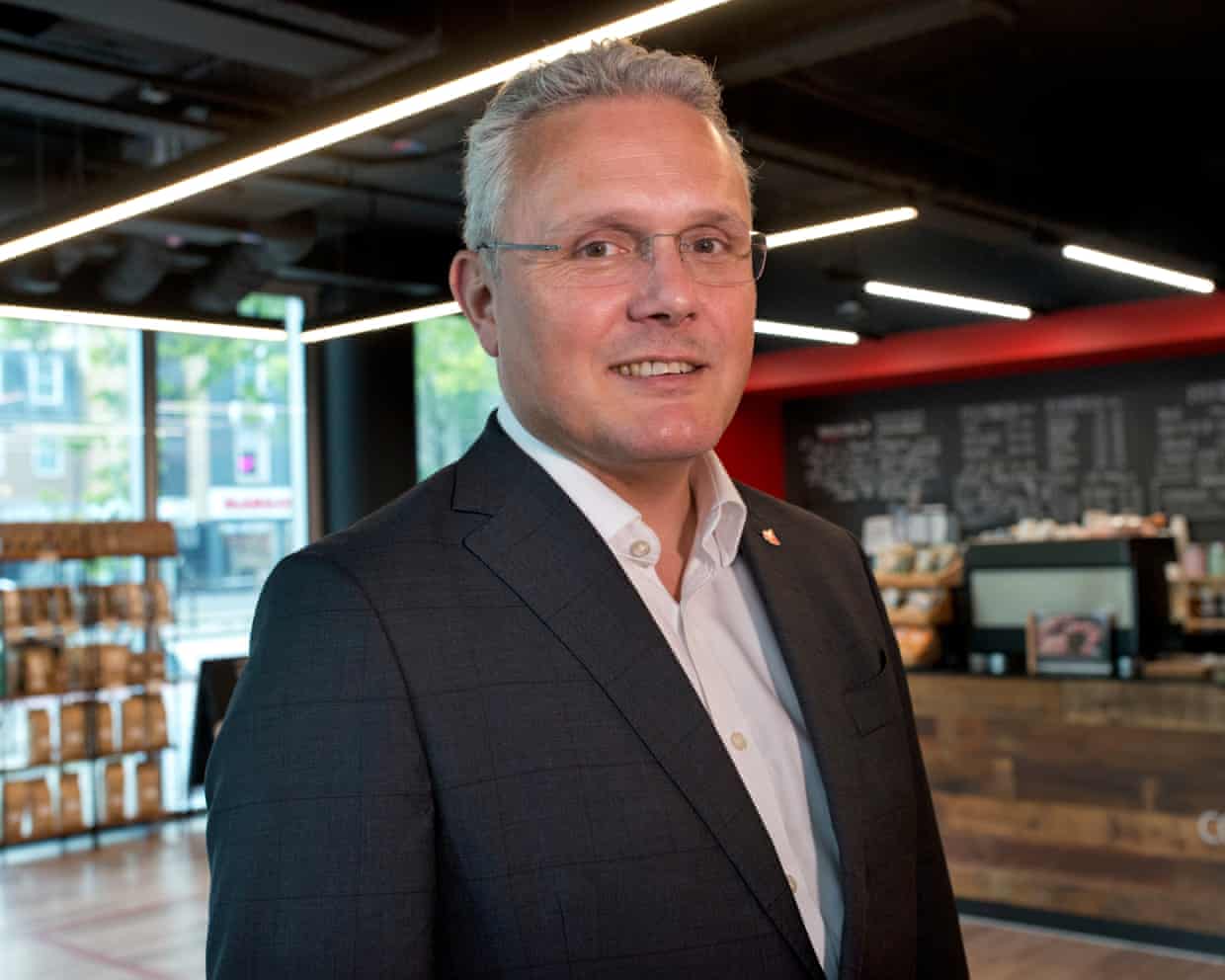
Santander urges ministers to intervene in UK car finance compensation scheme
Santander UK has urged the government to intervene in the £11bn car finance compensation scheme, claiming that the current proposals could end up inflicting “significant” harm to consumers, jobs and the broader economy.The comments mark some of the strongest criticism to date of the Financial Conduct Authority’s (FCA) redress scheme, which is meant to draw a line under 14m historic car loan contracts that may be deemed unfair because of commission arrangements between lenders and car dealers.The Spanish-owned UK lender has come out swinging, calling on the government to take action and push for “material changes” to the City regulator’s proposals, which are out for consultation following a landmark supreme court hearing in August.The chief executive of Santander UK, Mike Regnier, said: “We believe that the level of concern in the industry and market is such that material changes to the proposed FCA redress scheme should be an active consideration for the UK government.“Without such change, the unintended consequences for the car finance market, the supply of credit and the resulting negative impact on the automotive industry and its supply chain could significantly impact jobs, growth and the broader UK economy

Aston Martin cuts investment plan by £300m as Trump tariffs bite
Aston Martin has slashed £300m from its investment plans after the British carmaker reported a bigger than expected loss in the third quarter because of Donald Trump’s tariffs and weak demand in China.The company said on Wednesday that losses before tax were £112m in the third quarter of 2025, a ninefold increase from £12m a year earlier.The brand, whose products are best known for featuring in the James Bond film franchise, has been buffeted by global pressures during a five-year turnaround effort that has been marked by perennial heavy losses.Aston Martin had already warned earlier this month that this year’s profits would be lower than previously expected because of a decline in sales. It sold 1,430 cars to retailers during the third quarter of 2025, down 13% compared with the period last year
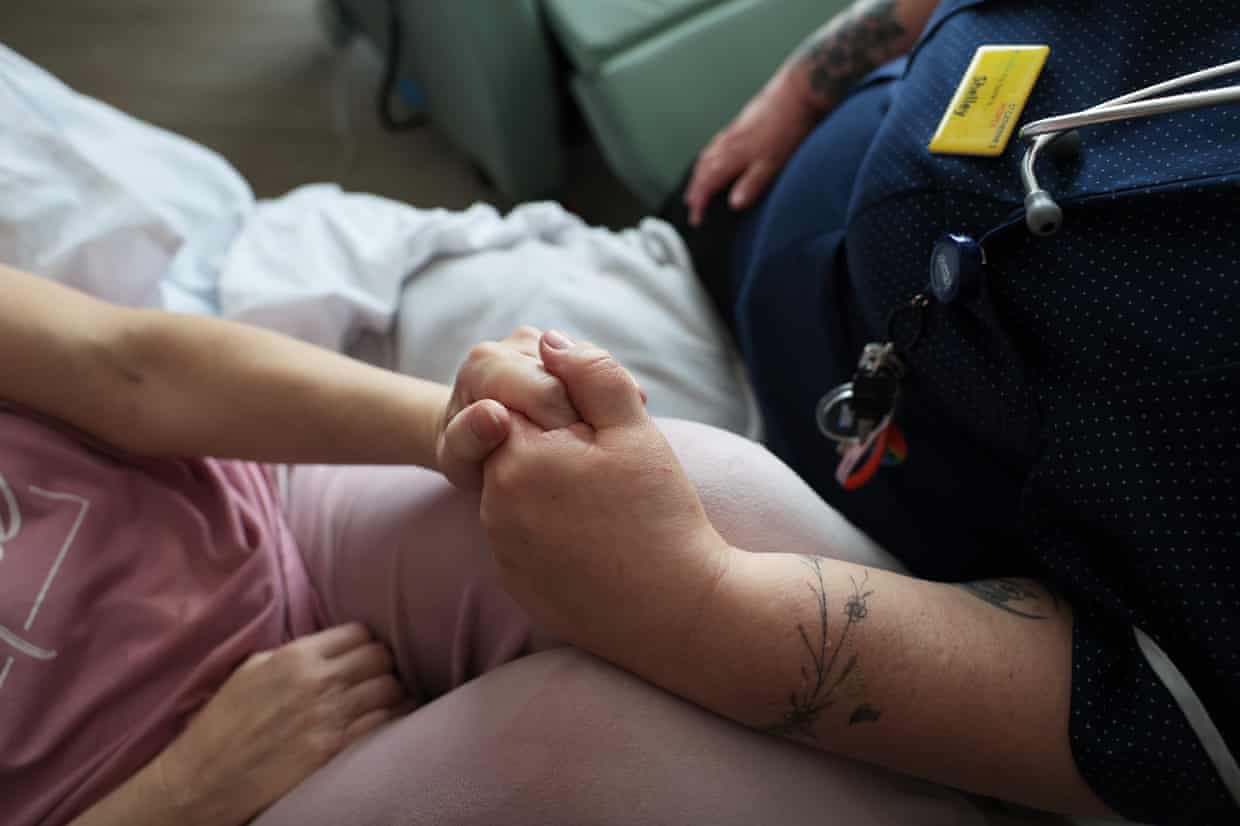
Hundreds of hospice beds and staff cut in England amid funding crisis
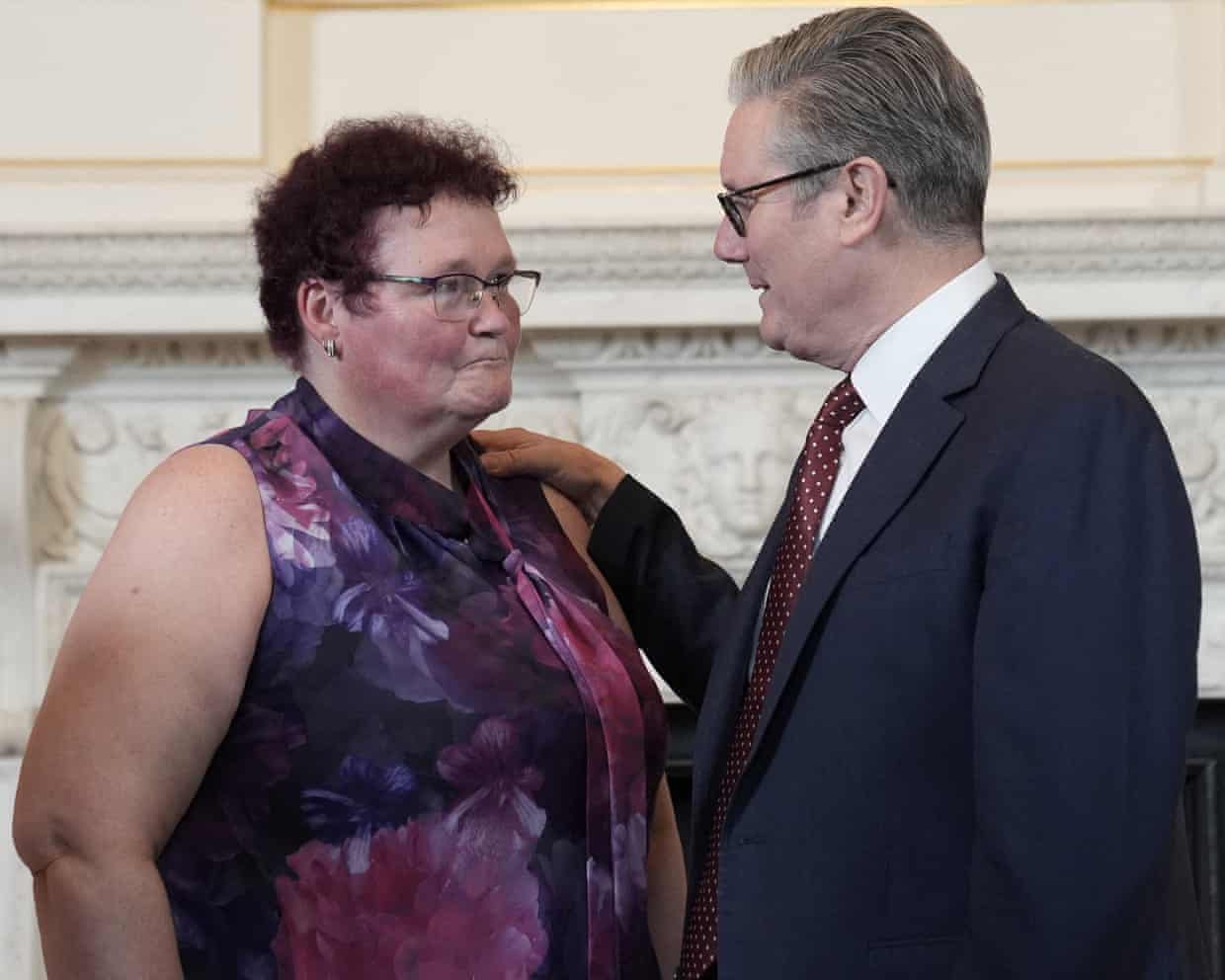
‘No more children are going to die like you’: how Sheffield mother kept her promise to boys killed by father 11 years ago

NHS makes morning-after pill available for free across pharmacies in England

Five more prisoners freed in error after sex offender’s release from Essex jail

EHRC guidance will help businesses comply with the law on sex and gender | Letter

Gambling does not cause any ‘social ills’, lobbyist tells incredulous MPs